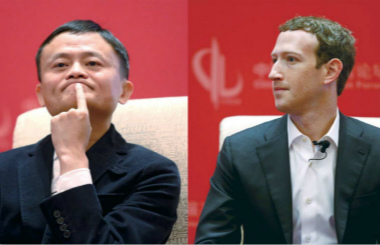Supercomputers are the future: Russian physicist
Updated: 2016-04-06 16:58
(sputniknews.com/chinadaily.com.cn)
|
|||||||||
 |
|
Igor Abrikosov said that smart computers help scientists develop materials that did not exist before. [Photo provided to chinadaily.com.cn] |
A prominent Russian physicist said supercomputers are the key to new materials.
Igor Abrikosov, professor at Sweden's Linköping University and head of the Laboratory on Modeling and Developing New Materials at the National University of Science and Technology MISIS (NUST MISIS) in Moscow said that smart computers help scientists develop materials that did not exist before.
Abrikosov said powerful supercomputers open complete new opportunities for receiving information about materials and develop new materials.
Computers' increasing power allows scientists to reduce the number of approximations in the calculations, thereby making the forecasts more precise.
"Supercomputers can help scientists conduct virtual tests. Now they can use them to model experiments with all possible elements and combinations. Such computers allow them to hold hundreds of virtual tests, thereby reducing the number of real physical experiments to single digits," Abrikosov added.
Abrikosov said scientists are now seeking new materials with tailored properties all over the world.
"We need them for energy including solar energy, materials that will help save generated energy, materials for fuel cells and materials with a thermo-electric effect. We need so-called magneto-calorific materials for more effective refrigerators. The list is endless."
In Abrikosov's opinion, the human race faces many global challenges, some of which concern the quality of life. He said these kinds of materials are lacking in our daily life.
He took this as an example: "People live longer lives and older people need good artificial limbs for a full-fledged life. We work with materials for such limbs. If a man broke his leg, he needs an implant. The problem is that the current used implant is much stronger than bones. When a man walks, the burden is borne by the implant, which leads to the degradation of the bone. One of our important tasks is to create a bio-compatible implant that will be as resilient as our bones."
Abrikosov also said the development of materials for green technology is another central topic in material engineering.
Abrikosov introduced that in the last half a year he was very interested in the description of materials in extreme conditions.
"Learning to describe materials operating in such extreme conditions means facilitating their development," he said.
His second area is materials informatics. He said that material engineers do not yet have a system that would allow them to ask about a material that would combine both certain contractibility and certain conductivity They would immediately receive an answer on its composition and structure.
"Material scientists regularly use Google. But it is not designed for resolving such tasks and its bibliography is not detailed enough. This is why we want to create a specialized search engine and provide it with information. A supercomputer will let us receive, stockpile, and systematize information and we will advance material science," Abrikosov said.
Today's Top News
Social media fury after woman claims attack in hotel
Germany rules out debt relief for Greece
Li: Tax reform to boost vitality of real economy
First wave of migrants returned to Turkey
Once-endangered pony makes comeback
Bookshop worms way into community
A fresh start
Bookshops reinvent themselves
Hot Topics
Lunar probe , China growth forecasts, Emission rules get tougher, China seen through 'colored lens', International board,
Editor's Picks

|

|

|

|

|

|







